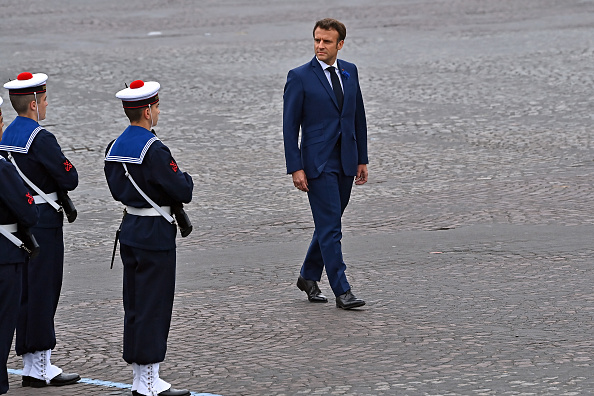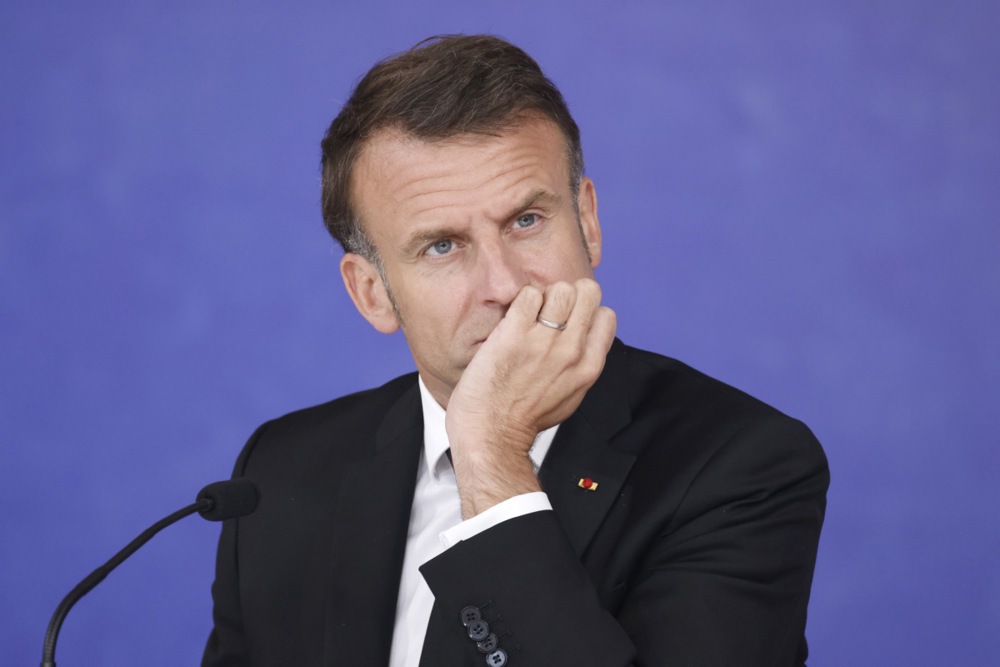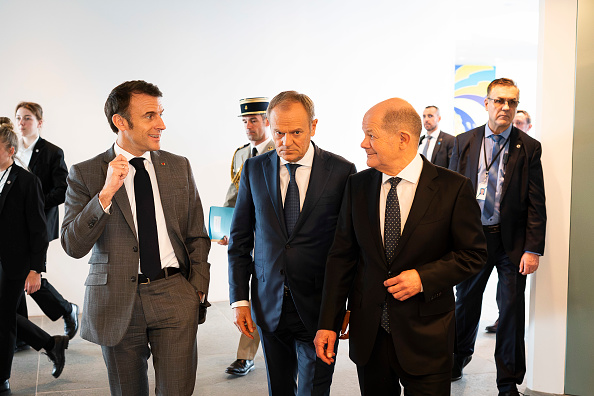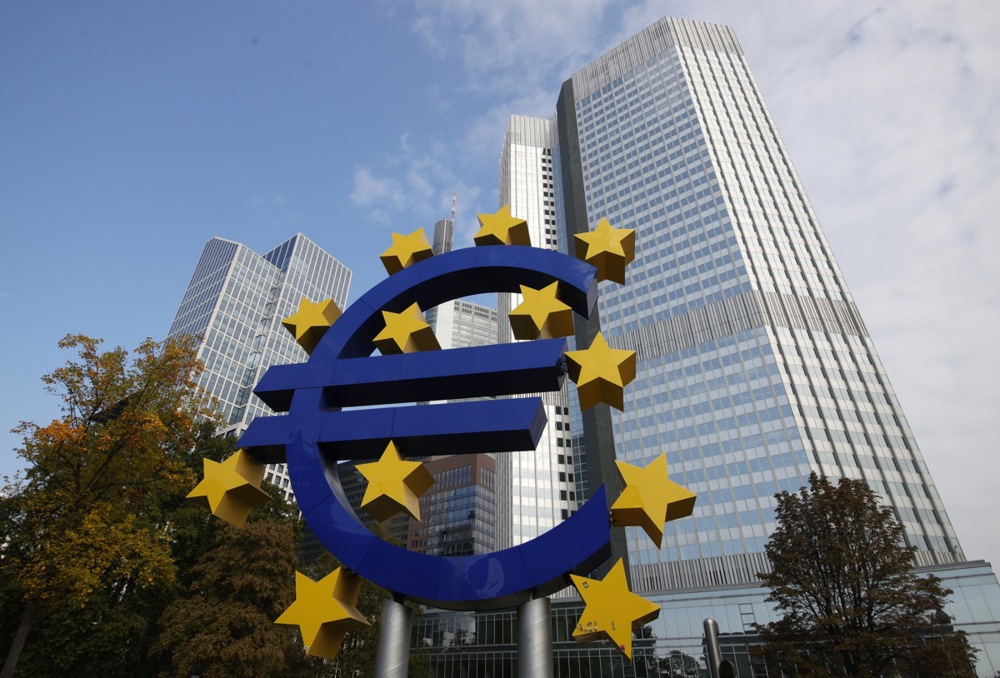French President Emmanuel Macron has called for a doubling of the EU budget as part of an address kickstarting his European Parliament campaign.
The union needs “between €650 and €1,000 billion per year more” a year to invest in defence and decarbonisation, Macron said, arguing that “we must succeed in doubling Europe’s financial action capacity, at least doubling it in budgetary terms”, he added in the speech.
Macron previously floating the idea of a “grand Europe” at the height of his popularity in 2017.
Seven years later, the French leader now finds himself struggling. His governing coalition polls at just 17 per cent, far behind Marine Le Pen’s Rassemblement National on 32 per cent.
A left-wing Socialist-Place Publique coalition now also looks poised to overtake him in popularity, with the alliance most recently garnering 14 per cent in an IPSOS-Le Monde survey on April 29.
Macron’s push for more EU cash appears to be an attempt to remedy the situation, with his 2017 calls for a “Powerful Europe” — one with France somewhere close to, if not quite in, the driver’s seat — having previously been well received by voters.
It appears uncertain whether Macron will get his way, with Stéphanie Riso, Director-General of the European Commission’s Budget department, warning that getting more money for Europe is “going to be extremely difficult”.
The EU budget, at €1.2 trillion in the past seven-year period, has remained constant at around 1 per cent of total GDP since the end of the 1980s.
The so-called “frugal” countries that pay more into the budget than they get out of it — Germany, Finland, Austria, and Ireland — do not want that to increase.
On the other side are 11 Member States countries — including France — that are set to be reprimanded by the EC for excessive government spending.
France, Italy and Belgium face likely fines in June for running budget deficits exceeding 3 per cent of GDP, larger than allowed under EU rules.
French voters will use the European Parliament elections in June to express their dissatisfaction with French President Emmanuel Macron, research has found. https://t.co/Aw4uForwUu
— Brussels Signal (@brusselssignal) April 30, 2024
Even with both the EC and Germany pouring cold water onto Macron’s proposal for a doubled EU budget, a clash in Brussels on whether or not to increase the bloc’s funding appears to be brewing.
The EU common budget is “not fit for the future”, EU budget Commissioner Johannes Hahn said on April 29 at an annual EU conference on the subject in Brussels.
Hahn added that using the conditionality approach of the EU’s pandemic recovery fund — which grants the EC considerable discretion over pay-outs to Member States — “is a very interesting concept for the future”.
He argued that the next budget also will need to grow to pay for defence, climate change and new members, and should “think beyond” direct contributions from Member States.
Hahn preferred that the EU develop its “own resources”, such as by establishing taxes on large companies benefiting from the bloc’s single market.
Raising EU taxes and acquiring a treasury of its own is, some say, likely to strike “frugal” nations as a step too far.
Still, for the EU’s budget as it is today, “defence is completely outside our budgetary possibilities”, former Italian prime minister Enrico Letta told the budget conference.
Even reimbursing the EU’s €750 billion (in 2018 prices) post-Covid National Recovery and Resilience Plans funds will present a “large bill, which cannot be paid at the expense of the [present] budget and, therefore, there will have to be an increase”, Portugal’s foreign minister Paulo Rangel said.
Moldova’s President Maia Sandu told conference attendees the EU should think bigger still — and develop an updated version of the US’ post-war Marshall Plan to funnel development aid into Ukraine and, incidentally, Moldova.
German Chancellor Olaf Scholz and French President Emmanuel Macron are advocating for a “rebalancing” of trade between Europe and China amid Berlin’s efforts to woo Beijing. https://t.co/8OkRkSMXP2
— Brussels Signal (@brusselssignal) April 15, 2024





